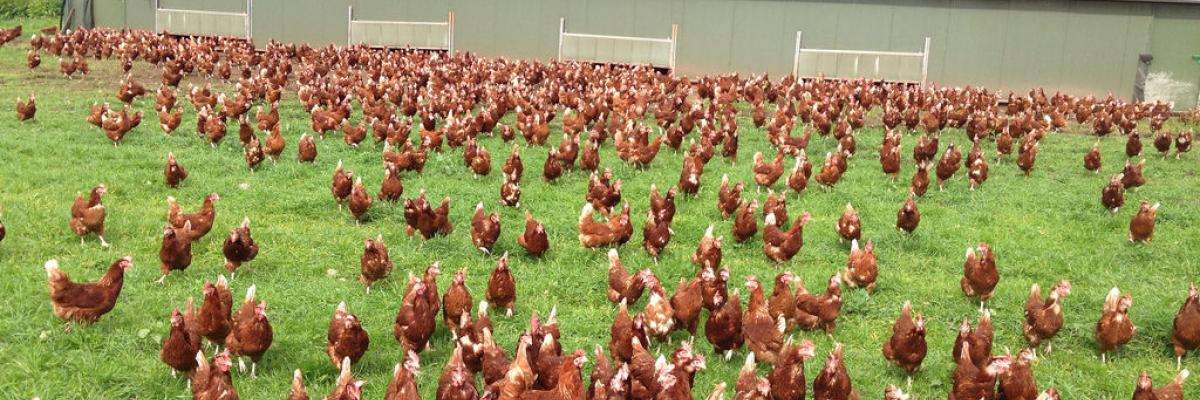
Improving bird welfare on free-range systems
A Nuffield Farming Scholarships Trust Report
Download the PDF
This report by Gordon Whiteford provides insights into ways to improve bird welfare on free-range systems in the UK. Increased consumer demand for higher welfare standards in the egg industry has seen rapid growth and intensification of UK free-range farming systems. This creates a risk of a ‘race to the bottom’ mentality on price, effecting welfare standards, and causing reductions in on-farm efficiency. This report suggests that rather than focussing on maximising economies of scale, farmers should adopt more integrated, diverse and higher welfare egg systems with the potential to add value and improve bird welfare. The report considers key aspects surrounding welfare standards, economies of scale, soil health and farming systems. It draws on field trips to the Rondeel system in the Netherlands, intercropping and biological control methods in Kenya and South Africa, and organic systems used in Denmark.
Welfare
- The innovative higher welfare standards of the Rondeel system in the Netherlands has the potential to be adapted to the UK, combining barn with elements from free range systems. The Rondeel system houses 300,000 non-beak trimmed birds in five flocks in a central core area with day and night quarters. Birds also have access to a wooded area around the perimeter to access further foraging.
Economies of scale
- Farmers should take advantage of on farm assets such as hen manure which improves soil structure and is rich in important soil nutrients such as calcium.
Soil
- Soil is fundamentally the most important aspect in agriculture. Diverse cover crop mixtures and reduced tillage can improve long term soil structure and health, building resilience against the impact of unpredictable rainfall and weather conditions in the UK and reducing the pest and disease burden.
Farming systems
- Diversity brings security, building healthy, resilient farming systems with a focus on biological farming and nurturing the soil. Mixed complementary livestock and crop systems can bring economic benefits such as reducing reliance on GM soya feed, and improve bird welfare.
(Photo credit: Gordon Whiteford)

